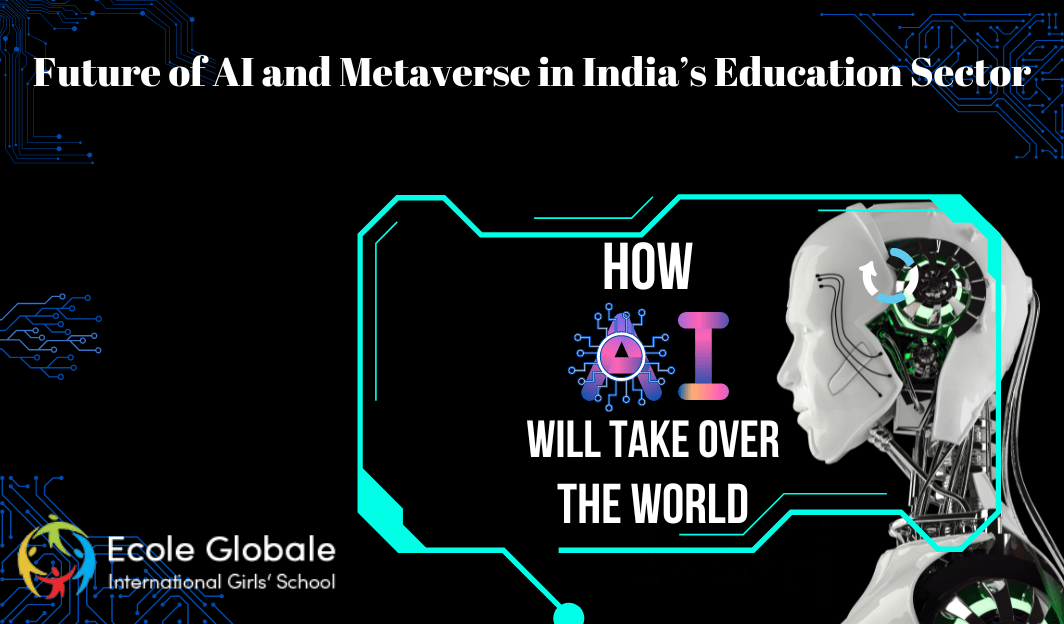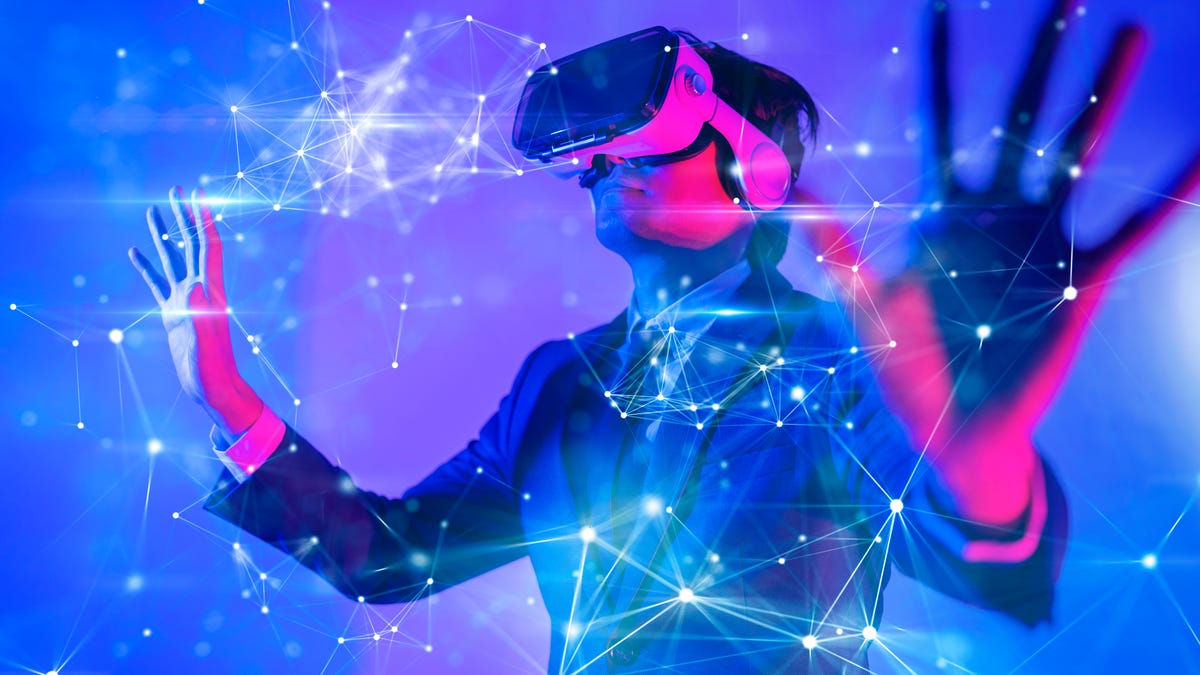Education has been considered one of the major pillars of development by many. It has the power to empower an individual by making him or her more aware of things around them. The best way to understand, recognize and appreciate something is to be educated about it. In order to facilitate this, the education sector plays a major role in every country as it is directly correlated with the development and growth of a nation. This can be seen in India as well, where great emphasis has been consistently put on providing quality education to children both at the school and college levels.
1. The Current State of AI and Metaverse in Education in India
Current trends in AI and metaverse in education
Artificial Intelligence (AI) is a broad term that encompasses multiple technologies such as machine learning, deep learning, natural language processing, computer vision, and many others. It is an emerging technology that has the potential to transform our lives by optimizing processes, automating tasks, and improving the quality of life in general.
The Current State of AI and Metaverse in Education in India: The current state of AI and metaverse in education in India is very similar to its state in other countries like the US or UK. The main reason why AI is getting more popular is that it can help solve many problems which have been difficult to solve using conventional methods. This includes things like finding solutions for climate change, pollution problems, genetic diseases, etc. In addition to solving issues related to health care, agriculture, and manufacturing industries, AI can also be used for education purposes by providing personalized solutions for students based on their learning needs.
Challenges faced in implementing AI and metaverse in education
According to the Girls boarding school in Dehradun, AI and metaverse are the two most talked about topics in the education sector. Both these technologies have the potential to make a huge difference in the way we learn. But there are challenges that need to be addressed before they can be implemented on a large scale.
In this article, we will discuss the current state of AI and metaverse in education in India and some of the challenges faced while implementing them.
2. Advantages of AI and Metaverse in Education in India
Improved learning outcomes
The introduction of AI and Metaverse in education:
The introduction of AI and Metaverse in education will help students to improve their learning outcomes. In addition, it will also help teachers to teach better. The use of technology has improved the quality of teaching and learning. It will be an important step towards improving the quality of education in India.
AI can help students to learn better by providing them with personalized learning experiences. The system will analyze students’ preferences and needs individually and provide customized resources that are relevant to their interests. This helps them to retain information more easily and makes them more confident when they teach themselves through a self-learning process. Students can also learn at their own pace without any pressure from teachers or parents.
The introduction of AI has helped teachers to teach better because it allows them to focus on creative thinking instead of routine tasks such as grading papers or giving tests etc. Teachers can also spend more time engaging with students instead of doing administrative work like record keeping etc., which is a time-consuming task for most teachers.
Personalized learning experience
The use of artificial intelligence and metaverse in education is gaining popularity in India. The education sector is one of the most important sectors of any country. This sector plays a vital role in shaping the future of the country’s population. Most countries around the world are using artificial intelligence and metaverse to enhance their education system.
Artificial Intelligence is being used for various purposes such as improving the decision-making process, detecting risks, reducing costs, and improving customer service. It also helps in the automation of repetitive tasks and can be used to predict trends based on data collected from social media websites such as Twitter, Facebook, etc.
Metaverse is another technology that is being widely used by educational institutions for enhancing their teaching methods and learning experience for students.
It allows students to interact with virtual objects and environments without requiring any physical presence at all. Apart from these advantages, Metaverse also helps educators to provide personalized learning experiences to students by creating customized content according to their needs and requirements.
3. Future Possibilities and Potential of AI and Metaverse in Education in India
Virtual classrooms and personalized learning
Virtual classrooms are growing in popularity as a way for students to learn without having to physically attend classes. The technology allows students to engage with teachers, other students, and experts from around the world in real time, without being physically present at a particular location. This means that they can learn at their own pace and time, while also getting feedback from their peers and teachers on their projects or tasks.
Virtual classrooms are also beneficial for teachers because they allow them to perform multiple roles simultaneously, including monitoring student performance and offering individualized feedback on assignments.
Virtual classrooms have been around for several years now but interest in them has increased significantly in recent years due to their ability to provide personalized learning environments for students who need help with specific skills related to their studies. AI can be used in virtual classrooms by analyzing data sets collected by previous users who completed similar tasks or projects, then providing each student with relevant information based on the specific needs of that particular person or group of people (e.g., age range; geographic location).Use of chatbots and AI-powered tutors
Chatbots and AI-powered tutors are the next waves of technology to help students learn. They offer an alternative to a traditional classroom, helping students learn at their own pace.
The use of chatbots and AI-powered tutors is growing quickly for learning. As a result, more schools are adopting these technologies as a way to increase student engagement and achieve better outcomes.
Chatbots and AI-powered tutors can be used in many ways:
1. To help students with specific questions or problems
2. To introduce new concepts or ideas
3. To provide feedback on assignments or exams
Enhanced learning through virtual and augmented reality
Virtual reality (VR) is a virtual environment that can be explored and interacted with using devices including video games, stereoscopic displays, head-mounted displays, or a television screen and a computer. Augmented reality (AR) is a technology that layers computer-generated enhancements atop an existing physical environment.
Both VR and AR have the potential to enhance learning by providing more immersive, engaging, and effective experiences for students.Integration of blockchain technology in education
As per research conducted by Schools in India, The integration of blockchain technology in education is one of the most exciting developments in the industry. Blockchain is more than just a cryptocurrency, it’s a technology that allows for secure peer-to-peer transactions and other uses. In fact, there are many applications for blockchain beyond cryptocurrency.
Blockchain has many advantages over traditional systems. It’s more secure because it’s decentralized and there are no centralized points of failure. It also provides full transparency, meaning that all participants can see all transactions that have been made ever since the beginning of the network. This makes it possible to eliminate fraud and corruption, as well as make sure that every transaction is traceable and verifiable.4. Potential Challenges and Concerns with AI and Metaverse in Education in India
Ethical concerns related to data privacy and security
Data privacy is a major issue when it comes to using AI in education. There are concerns about how this technology will be used by companies that have access to large amounts of data. It’s possible that they could use this data to make decisions on who gets hired or promoted based on their previous performance rather than their potential or skills. Another possible concern is that companies might discriminate against certain groups based on the information they have collected about them, such as race or religion. This would violate ethical guidelines set by organizations like the IEEE Global Initiative for Ethical Considerations in Artificial Intelligence and Autonomous Systems (IEEE GIE).
Security is also an important concern when using AI in education because if someone was able to hack into your account they could view all your information including grades and test scores which could lead them to take advantage of you by offering you lower-paying jobs based on your grades even though you may be equally qualified as others with higher grades.
5. Conclusion
One important conclusion to draw from the research of this project is that AI and virtual reality-based education tools can be potentially used as powerful teaching aid. AI and 3D modeling programs, once combined with the immersive power of metaverse, open data visualization to a whole new level, thereby boosting overall student learning outcomes.
For any queries related to parenting, schooling, or any student-related tips, click here to check out our latest blogs.










